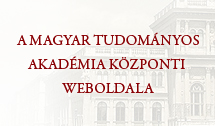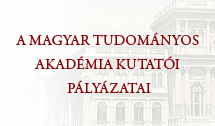A Bölcsészettudományi Kutatóközpont Filozófiai Intézet a „Fenntartható városi fejlődés - filozófiai, szociológiai és történeti elemzések” litván-magyar bilaterális projekt keretén belül december 14-én
Urban development and crisis management – Reflections from the humanities and the social sciences
címmel konferenciát rendez.
The city – defined as a continuous transformation – is a visual and built imprint of time. Throughout history, the city was determined for continuous development and transformation, because the needs of the current population always had to be served. Social transformations, wars, epidemics, economic and moral crises always force thinkers to reflect on the changes in the social environment. There is a constant need for rethinking, rebuilding, and redesigning. Spiro Kostof (1991) argues that urban design must include the definition with some very precise points about what shapes the cities. In his essay, “Urbanism as a Way of Life” (1938), Louie Wirth describes the city with a sociological definition. The discussion about visions of a good city and about the cities of the future started in the interwar period and has continued ever since. In addition to renewal, renovation and modernisation, creative and sustainable solutions are also needed in crisis situations. The most promising approaches to the current processes of urban development today offer multidisciplinary solutions.
A konferencia programja és az absztraktfüzet elérhető ITT.
Járványügyi okok miatt a konferencián nincs lehetőség személyes részvételre; hozzászólást, kommentárt Zoom-on keresztül intézhetnek az érdeklődők az előadók felé.
A konferencia Zoom-linkje:
https://zoom.us/j/95492734064?pwd=ME1wS3VUdDN6cUxKQk82LzJydUVmZz09
A konferencia szervezője: Jász Borbála (BTK FI / BME)



